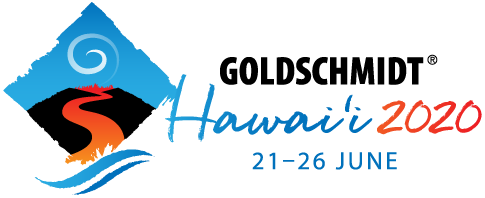 国际地球化学年会(Goldschmidt Conference)是国际地球化学界的最高级别学术会议,每年举办一次, 规模通常可达数千人。该会议为全球杰出地球化学家提供了展示成果、交流思想和促进合作的平台。会上颁发“哥德斯密特奖”,作为国际地球化学界公认的最高奖励,奖励国际上在地球化学领域最有贡献的地球化学家。2020年6月21日至26日,国际地球化学年会(Goldschmidt Conference)在美国夏威夷(Hawaii)召开,摘要截至日期为2020年2月14日。
国际地球化学年会(Goldschmidt Conference)是国际地球化学界的最高级别学术会议,每年举办一次, 规模通常可达数千人。该会议为全球杰出地球化学家提供了展示成果、交流思想和促进合作的平台。会上颁发“哥德斯密特奖”,作为国际地球化学界公认的最高奖励,奖励国际上在地球化学领域最有贡献的地球化学家。2020年6月21日至26日,国际地球化学年会(Goldschmidt Conference)在美国夏威夷(Hawaii)召开,摘要截至日期为2020年2月14日。
为了更好地探究稳定同位素地球化学(包含放射性同位素)最新研究进展,设置了相关专题(Advances in Stable Isotope Geochemistry: Chemical Physics, Analytical Techniques, and Applications)。本专题已经邀请2009年“哥德斯密特奖”获得者美国科学院院士Mark Thiemens教授、美国路易斯安娜州立大学、美国AAAS会士(Fellow)鲍惠铭教授做邀请报告。
本会场的相关主题包括但不限于:
(1)同位素效应的实验模拟及理论计算;
(2)同位素分析技术(尤其欢迎高分辨率同位素比值质谱,多接受电感耦合等离子质谱、可调谐激光吸收光谱等新技术的相关研究);
(3)同位素新技术/理论在环境科学及大气化学的应用
(4)同位素新技术/理论在地质学及地球化学的应用
(5)同位素新技术/理论在行星科学及天体化学的应用
非常希望国内外专家学者和老师同学多多支持和参与,期待与您们在Goldschmidt 2020交流与讨论!
会议网站:https://goldschmidt.info/2020/index
专题英文介绍:
14h: Advances in Stable Isotope Geochemistry: Chemical Physics, Analytical Techniques, and Applications
Conveners: Prof. Yan-Lin Zhang (章炎麟,zhangyanlin@nuist.edu.cn) from NUIST, Nanjing, China
Prof. Mang Lin
Prof. Naohiro Yoshida (yoshida.n.aa@m.titech.ac.jp) Tokyo Institute of Technology
Keynote: Mark Thiemens (University of California San Diego)
Since 1947, when Urey, Bigeliesen and Mayer published papers calculating the temperature dependency of isotopic equilibrium and Nier and his colleagues published a paper reporting the development of the stable isotope ratio mass spectrometer for high precision measurements, the field of stable isotope geochemistry has been rapidly developing. For example, the discovery of chemically induced mass-independent fractionation opened many frontiers in understanding early solar system processes and the evolution of planetary atmospheres. Developments of position-specific and clumped isotope analytical techniques allow a deeper understanding of Earth’s biogeochemical cycles and potentially astrobiology. The inclusion of radioactive nuclides (e.g., 14C and 35S) in isotope measurements has also added a new arrow to the quiver of tracing atmospheric, hydrological, and environmental processes using traditional stable isotopes (e.g., 13C and 34S). This session will focus on recent stable isotope geochemistry studies ranging from chemical physics investigation, analytical technique development, and their applications in nature. We invite studies focused on the fundamental principle of isotope effects via laboratory experiment investigation and numerical calculation. We also seek contributions that develop novel analytical approaches (e.g., HR-IRMS, MC-ICP-MS, SIMS, NanoSIMS, TDLAS) for new stable isotope geochemistry applications. In particular, we encourage submissions that use isotope to solve a wide range of problems in atmospheric, environmental, earth and planetary sciences.
